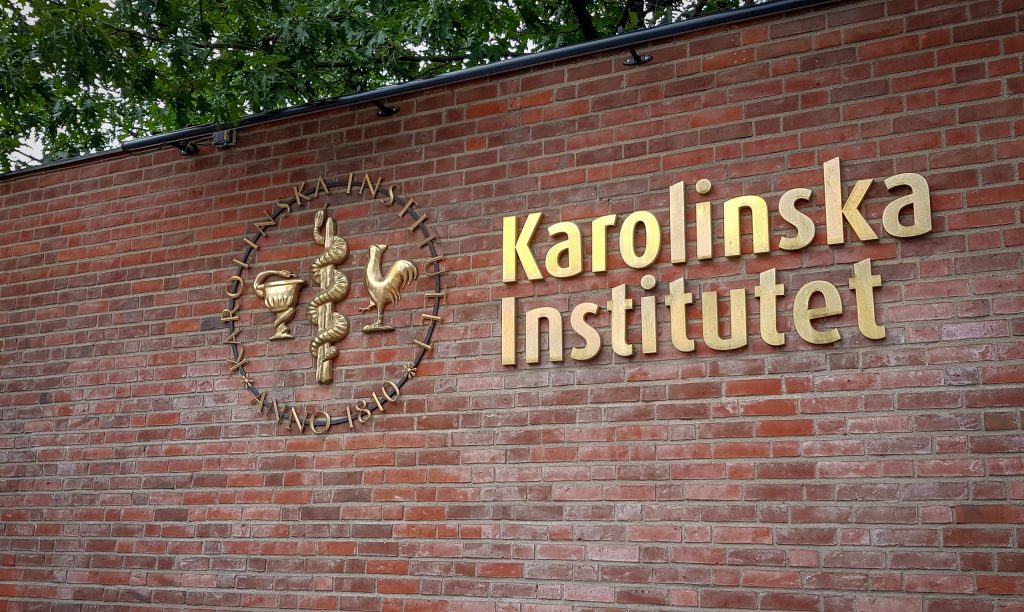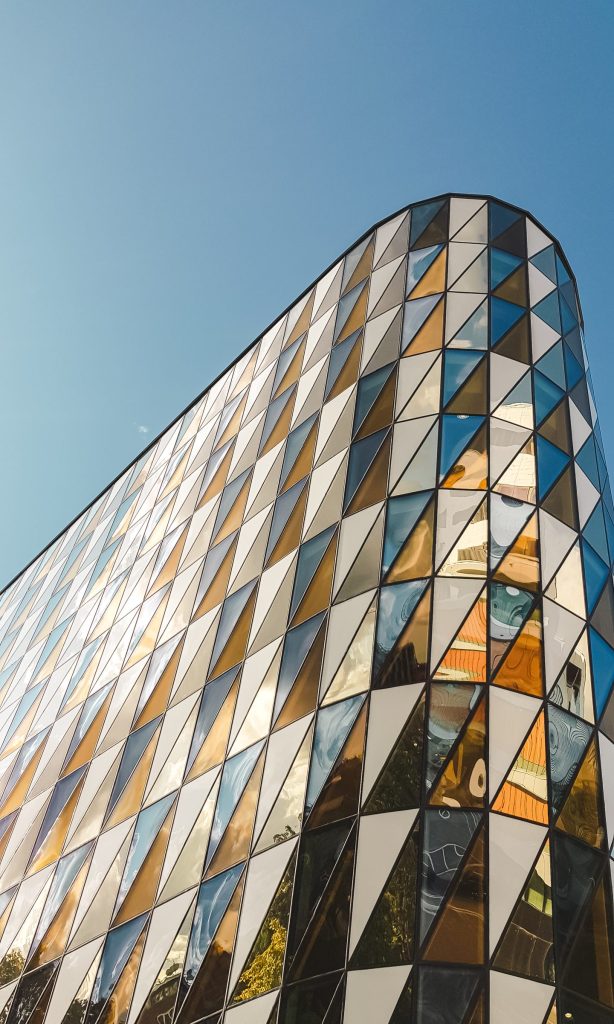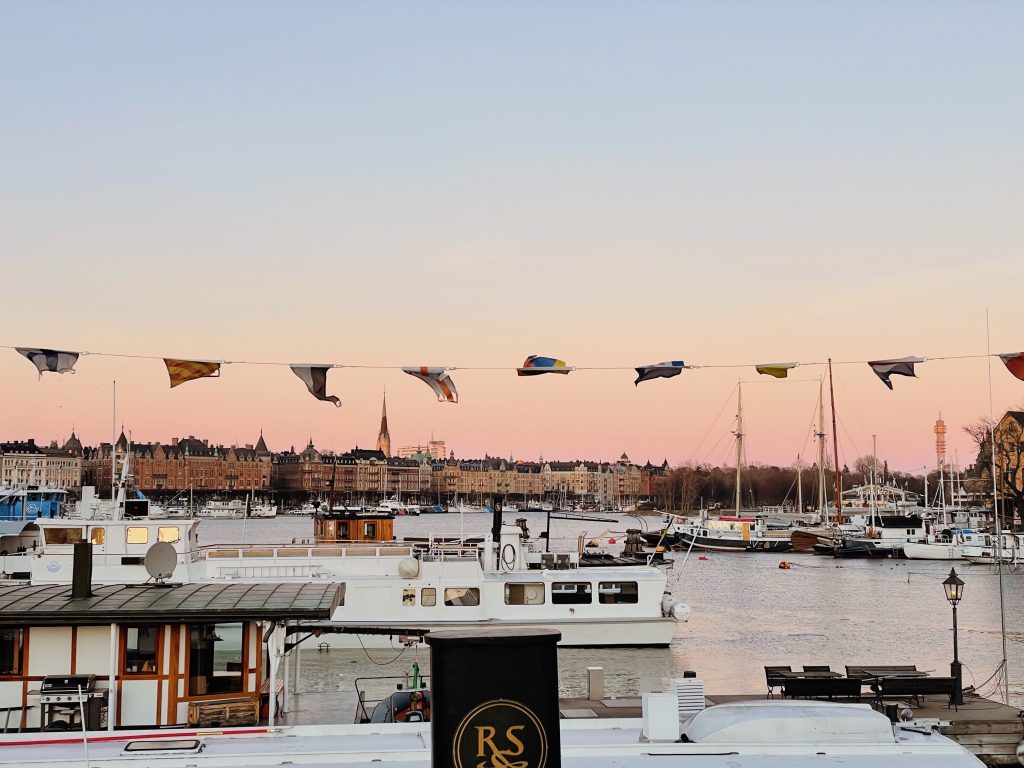
Why I almost did not apply to KI (but why I’m glad I did)
The application period is open and, wow, is this a wild time! While reflecting on my experience of going through the process two years ago, I began to wonder if applying to Karolinska Institutet (KI) was an easy decision for me. The honest answer is, no. Despite knowing KI as a renowned university, I had multiple hesitations that almost stopped me from applying. In this blog, I’ll guide you through how I navigated the decision, why I ultimately decided to apply, and why I’m so glad I did.
1) Competitive admission
When I began reading about KI’s global master’s programmes, I got incredibly excited about the idea of studying here. I would daydream about living in Stockholm, meeting inspiring people, and studying a topic that fascinates me. But when I saw the admissions statistics, my heart sank. Discouraged, I stared at my drafted application knowing that my chances of getting admitted were much lower than I expected. That afternoon, I almost decided to abandon my hope of studying at KI.
Talking to fellow KI students, I’ve heard countless times that people reconsidered applying after seeing how competitive admission is. Some even said that had they known their programme’s acceptance rate, they would never have dared to apply.
KI is an excellent university and it certainly attracts many applicants. However, just because admission into the global master’s programmes is very competitive, it certainly does not mean it’s impossible.
So after my first impulse of wanting to give up on my application, I decided to be pragmatic instead of dramatic. Considering the low acceptance rate, I looked into less competitive programmes at other universities as well. That helped reduce my worry about what I would do if did not get accepted into KI. But, of course, I still really hoped that the master’s programme I applied to would accept me. Being aware that I was one of several hundred applying for a very limited number of study spots, I knew my application had to be good. Really, really good. So I made sure I set aside the time and allocated the energy to create an application I would be proud of.

2) Prestigious ranking
This one may seem a bit counterintuitive. Karolinska Institutet is a highly-ranked university and the prospect of studying at one of the best universities in the world certainly has its appeal. However, I was afraid that KI’s high ranking was clouding my judgment of whether this university––and particularly the programme I was interested in––was really a good fit for me.
Rankings can be a helpful tool in discovering universities you might find interesting. Yet, I did not want a university’s ranking to be the deciding factor in why I applied (or why I did not). For one, no ranking is perfect. Rankings are not free of methodical limitations and the selected parameters may not reflect what you prioritise when identifying if a programme is right for you. Additionally, a university’s current ranking will likely matter less in your career than the institution’s reputation after you graduate.

So when I was deciding whether or not to apply to KI, I did my best to ignore the ranking and instead focused on fit. Does the programme fit my academic and research interest? Do the teaching methods align with my learning style? Can I imagine myself enjoying and being challenged by my studies? Will I make friends among my peers and find mentors among the faculty?
Our greatest assets are our staff, students and alumni – who represent a slice of life at Karolinska Institutet in a way that statistical analysis never can.
Ranking and Karolinska Institutet, 2022
3) Other plans
After lots of reflection, I decided KI would be a good fit for me. One hesitation that remained though was whether I wanted to continue studying immediately after completing my bachelor’s programme. I knew I wanted to pursue higher education and a career in public health. Still, I felt that a few years of full-time work experience would greatly enhance my educational experience.
I decided to prioritise gaining work experience and started looking for jobs and internships. However, I soon noticed that finding a meaningful position at the height of the COVID-19 pandemic was incredibly difficult. So I re-evaluated my plan and focused all of my energy on applying to my top three master’s programmes* instead. I’m sure working for a few years before coming to KI would have been a valuable experience as well (and one that I would have initially preferred). But sometimes life just has other plans.
*Again, focusing on the programmes’ fit for me and not ranking.
Finally, why I’m so glad I did apply to KI
Watching the first snowflakes fall outside one of the KI library’s windows, I can say I am very grateful that despite my hesitations I decided to apply. I have met so many fascinating yet down-to-earth people from all over the world. The programme has been enjoyable and challenging and there are opportunities to get involved in organisations and research. Beyond learning critical research skills, I have noticed myself grow immensely as a team member. Living in Stockholm has been amazing, too!
While hesitations are annoying and can drain the excitement from planning the next step of your life, they are so important. My hesitations forced me to thoroughly reflect on if I wanted to study at KI. Then when I made my decision, I knew it was an informed one. My expectations of studying at KI were not too far from reality and I am treasuring the time I get to spend here.
So if you’re hesitating to apply to KI, just know you are definitely not alone! Take note of the factors that are holding you back (and those that you might be prioritising a bit too much) and examine them. Learn as much about KI and the programme(s), and really ask if KI is the right place for you. If it is, that’s great! Work hard on your application and don’t let the admissions statistics discourage you. If it’s not, that’s totally fine, too!

Being a master’s student is so much more than simply studying. It’s the people you get to learn with and from, how you get to spend your time outside of lectures, where you live, and a million other things. The programme you choose should make you happy––not just as a student, but as the complex, multifaceted person that you are. KI is that place for me, and I truly hope you find that, too.
– Sarah
Ps. What hesitations do you have? I’d love to hear them! Feel free to leave a comment. I am also always happy to answer any questions you may have related to life as a student at KI : )
Sarah Pechtl – Public Health Sciences, Health Promotion and Prevention
Hej! My name is Sarah and I’m excited to share my experiences as a Public Health Sciences, Health Promotion and Prevention student with you! I grew up in Salzburg, Austria but completed my bachelor’s degree in the United States where I studied nutrition and sociology. When I learned about KI‘s emphasis on collaboration and the diverse student cohort, I knew that KI is where I wanted to pursue my master’s degree. In my free time, I love having “fika” with my peers, spending time outdoors, exploring Stockholm and––on colder days––knitting.

0 comments